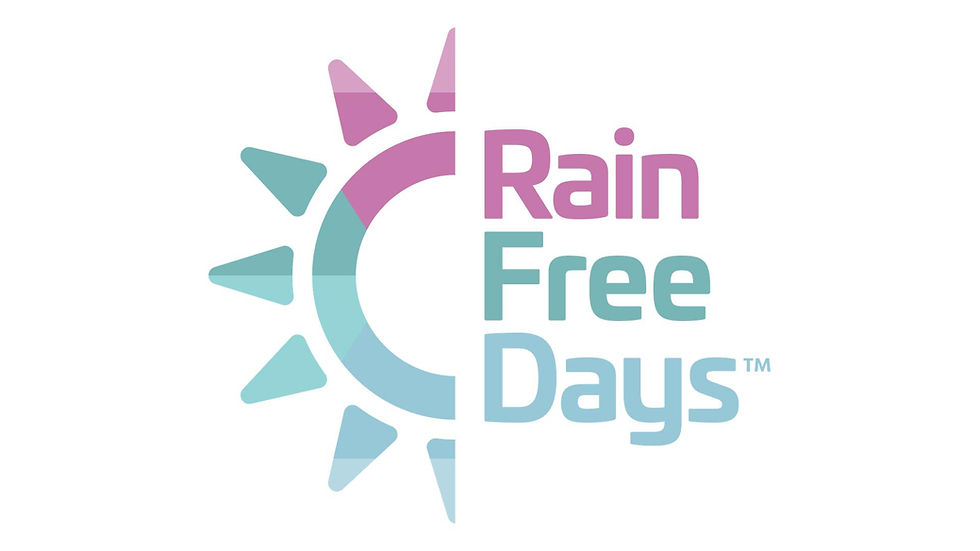An Isle on Trial
- matthewhunt123
- Feb 14, 2022
- 4 min read
by Lucy Silver

It’s now been two weeks since we downloaded the NHSX contact tracing app. Much as expected, not a lot about Island life has changed, with the exception of a fluttering of extra bunting of VE day, our weekly excitement of a trip to Asda…and the birth of our dog’s seven puppies.
Since its launch, the local paper reports that 53,000 residents have downloaded the NHSX’s app. This is approximately two thirds of the 80,000 Islanders who have a compatible smartphone, but less than half of the total population of 140,000.¹ To find out how it was being received, I spoke to two healthcare professionals on the Island, who preferred to remain anonymous.
What do local healthcare professionals think?
Both healthcare professionals were largely positive about the NHSX app and reported that most of their colleagues had downloaded it. Many can see how health tech could play a role in disease control, as one source said:
"This is the way forward. We’re going to have pandemics in the future, and we have to manage and contain them. I’m hoping the app will help them see how coronavirus is spread, because that’s one of the big issues at the moment. No one really knows just how it’s spread."
From discussions, I found that part of the reluctance for some people to use the app has been a lack of understanding about how it functions. Whilst the BBC and other news outlets have made an effort to illustrate the apps functionality, there is a degree of misunderstanding in the local community:
"Lots of people don’t understand how it works. I don’t think it’s been worded right at the moment. I think people need to hear about it more from the NHS, just a bog-standard worker, because they feel pressured to do it."
Ongoing security and data concerns as app source code is shared
In a move that should help to engender more trust, NHSX have now published the app’s source code, allowing third parties researchers to review it and raise possible concerns. Researchers told the BBC that a fundamental rethink of the app may be required around the app’s centralised system.² Thinking Cybersecurity chief executive Dr Vanessa Teague explains,
"There can still be bugs and security vulnerabilities in either the decentralised or the centralised models, but the big difference is that a decentralised solution wouldn't have a central server with the recent face-to-face contacts of every infected person, so there's a much lower risk of that database being leaked or abused."
So far, the discussions between the app developers and its independent reviewers have been constructive. GCHQ's National Cyber Security Centre (NCSC) has told the BBC that,
"It was always hoped that measures such as releasing the code and explaining decisions behind the app would generate meaningful discussion with the security and privacy community. We look forward to continuing to work with security and cryptography researchers to make the app the best it can be."
Is the app working?
As yet, the app is functioning, but it's too soon to tell how successful or helpful it will be. Whilst it’s simple enough to report symptoms, you can only input a high temperature and a continuous cough. There are also issues with how test results are reported back into the system. With the app in its current form, once a person has used the app to report symptoms and get tested, there’s no way for them to enter their test results –the app itself. This means that people who they’ve been in contact with would also be left in ‘limbo’ having received a text to take extra caution.³
NHSX is currently working on app updates to try and smooth out these issues and improve the functionality before the government rolls out the programme countrywide. Local MP, Bob Seely advises:
‘The app being used on the Island at the moment is effectively a beta version. It is and remains fully usable. It is not a stand-alone project, but is part of a wider three-pronged approach: the app, wider tracing and a comprehensive test programme. NHSX and Public Health England continue to work to ensure an integrated scheme.’
Throughout the Isle of Wight trial, the government and its advisors will be looking for ways to take what they learn here, and scale it up so that test, track, trace and isolate works effectively in the rest of the country where they don't have the advantage of being a small island with a relatively low number of Covid-19 cases. Success will depend upon the app working in conjunction with that ‘army of contact tracers’ manually calling potentially infected individuals, and fast and efficient testing with a turnaround time of 48 hours. It will also require the government to listen and respond to the experience of Islanders who are generally keen to comply, but in need of greater transparency, honesty and assurance from their representatives.
References:
About 11 London
11 London is an advertising and communications agency, based in West London. We work in the areas of health and humanity - with organisations, brands or products that improve or prolong life. To learn more about 11 London, please contact: matthew.hunt@11-london.com




